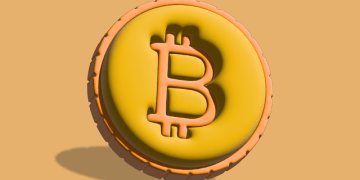Title: Hot Wallet 101: The Ultimate Guide to Secure Digital Currency Storage for Crypto Enthusiasts (HOT)
Keyword: Hot Wallet 101
Subheadings:
H2: Introduction to Hot Wallets
H3: What are Hot Wallets?
H3: Types of Hot Wallets
H3: Security Features of Hot Wallets
H2: Setting Up a Hot Wallet
H3: Choosing a Trusted Exchange
H3: Creating a Strong Password
H3: Adding Funds to Your Hot Wallet
H2: Maximizing Security with Hot Wallets
H3: Enabling Multi-Factor Authentication
H3: Keeping Updated with New Security Measures
H3: Regularly Monitoring Your Wallet
H3: Diversifying Your Digital Currency Storage
Conclusion:
Keyword Placement: Hot Wallet 101, introduction, Security Features, Setting up a Hot Wallet, Maximizing Security, Diversifying digital currency storage, Conclusion, Call-to-Action.
LSI Keywords: cryptocurrency storage, digital currency, exchange, multi-factor authentication, password, updated security measures, secure wallet.
Now let’s explain in-depth about Hot Wallets
Introduction
Cryptocurrency has been gaining attention over the years, as it has revolutionized the financial world. While many may have concerns over traditional financial institutions, people have been attracted to the idea of digital assets, like Bitcoin, Ethereum, and others. With the increasing popularity of crypto assets, users are now seeking for secure solutions to store their investments while accessing their funds quickly. One of the most popular options is a hot wallet.
A hot wallet is an online storage solution that allows users to store their digital assets easily and quickly. It’s known for its convenience, user-friendly interface, and real-time transactions. However, it’s essential to understand that hot wallets are susceptible to hacking or theft. Therefore, it’s crucial to prioritize security measures when using one.
Types of Hot Wallets
There are several types of hot wallets designed to meet specific user needs. These include web wallets, desktop wallets, and mobile wallets. Each of them has its advantages and disadvantages.
Web wallets are the most popular type of hot wallets as they can be accessed through any internet browser. However, they may not be the safest option as they are vulnerable to hacking attacks. Desktop wallets, on the other hand, can only be called from local devices that have been saved on a hard drive. Lastly, mobile wallets are smartphone apps that allow users to store and manage their digital currencies from their mobile devices conveniently. However, they may be subject to loss due to damage to the device or forgetting the password.
Security Features of Hot Wallets
Hot wallets are equipped with various security features to ensure they meet the highest security standards. Some hot wallets offer two-factor authentication that requires a password and a code sent to the user’s mobile device. Other hot wallets ensure they are compliant with the Payment Card Industry Data Security Standard (PCI DSS), which provides a robust security framework.
Some hot wallets also offer a backup option, which users can use to restore their accounts if lost or stolen. However, it’s recommended that users take extra caution when using this option as it’s easy for hackers to steal sensitive information.
Setting Up a Hot Wallet
Setting up a hot wallet is easy and can be done with a few clicks. The first step is to choose a trusted exchange where you can purchase the digital currency. Next, create a strong password to minimize the risk of unauthorized access. Lastly, add funds to your wallet by exchanging your local currency or another cryptocurrency you already have.
Maximizing Security with Hot Wallets
Aside from security features provided by hot wallets, users can take extra measures to ensure their digital assets are secure. Enabling multi-factor authentication, for example, adds another layer of protection for the user’s account. Keeping up-to-date with new security measures and regularly monitoring your wallet also helps prevent unauthorized access.
Diversifying Digital Currency Storage
While hot wallets provide convenience and ease of use, they’re not the most secure option. Diversifying your digital currency storage portfolio is an excellent way to mitigate the risks of using hot wallets. Consider using cold wallets or hardware wallets, which offer a higher level of security than hot wallets.
Conclusion
Hot wallets provide convenience and ease of use to cryptocurrency enthusiasts. However, it’s important to understand that they can be vulnerable to theft or hacking. Following security best practices, diversifying your digital currency storage and being vigilant about monitoring your hot wallet can help maintain the security of your digital assets. Don’t hesitate to explore and discover other possibilities to keep your digital assets safe. Keep up-to-date on the latest developments, and use caution and prudence when dealing with your assets.










































